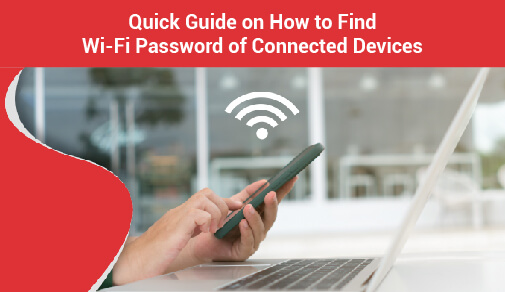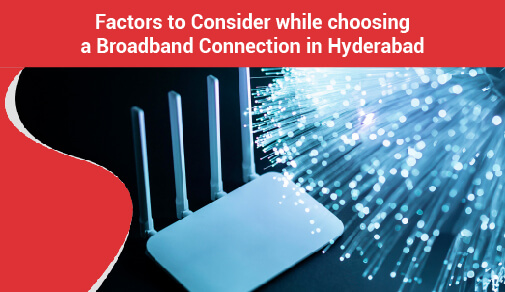Internet 101: All you need to know
-
0
-
-
3 minutes

Know More
Questions to ask while choosing an Internet service provider
Choosing an Internet service provider can be difficult, especially if you aren't sure what questions to ask. Getting all of the facts before signing on the dotted line is one of the secrets to loving the Internet service provider you choose. We've put up a list of questions you should ask yourself so you can be a wise Internet shopper.
Do I need wired or wireless broadband?
A wired network may be the best option if the expense of updating your network is an issue and you need the highest level of security and performance. A wired connection may be sufficient for your office needs if mobility is not an issue. If you don't care about cost and desire mobility and cutting-edge technology, a wireless network should be seriously considered. Most customers pick between wired and mobile broadband depending on their internet speed requirements, but if you choose wired, you must also choose between cable and fibre networks.
If wired, do I need fiber or copper?
In India, copper-based broadband is fairly prevalent, and it is frequently combined with a fixed telephone landline connection from the same ISP. Even with various developments in this field such as ADSL, VDSL, and VDSL2+, copper upload speeds range from 5 to 10 Mbps, while download speeds range from 15 to 70 Mbps, with minor oscillations. The availability of fibre broadband is one issue. In order to bring fibre broadband to a region, fibre optic connections must be built. This is one of the reasons why fibre broadband penetration in India is still quite low. DSL, on the other hand, uses telephone lines, therefore a copper internet connection may be found almost anywhere.
What is the contention ratio?
The contention ratio is a critical parameter that determines the maximum number of internet users who can share a fixed bandwidth on a single line at the same time. So, even if you choose a high-speed internet connection, if there are a lot of people using it, the contention ratio will be high, and the internet speed per user will always be low. If the contention ratio is 1:8, for example, up to 8 homes can share the bandwidth at the same time. In India, most ISPs currently offer a 1:30 contention ratio. With the recent introduction of Fiber to the Home (FTTH) Internet in India, you may now have dedicated 1:1 bandwidth, ensuring that you get the speed you pay for with no latency or sharing.
Are there any data restrictions?
Data limits are constraints placed on your Internet usage by your Internet service provider. Not all Internet service providers will impose a data cap, and some may impose both soft and hard limits. A hard data limit means that once you've used a specific amount of data, you'll either be charged an overage fee or be cut off entirely.
Is it possible to guarantee the speeds?
Unfortunately, most Internet providers do not issue speed guarantees, but it never hurts to inquire. Find out what you can do if your Internet isn't working at the speed of your plan, even if they don't offer performance guarantees. Slow speeds can occur as a result of equipment failure or a high number of users utilising your connection.







